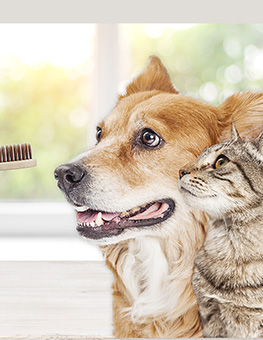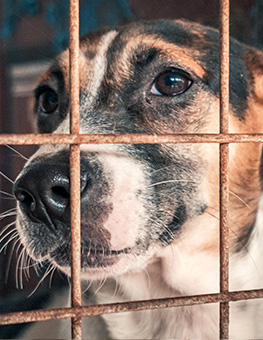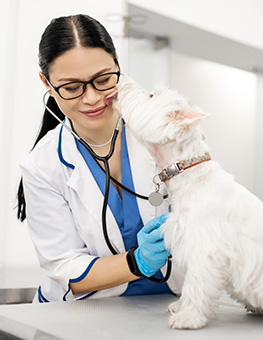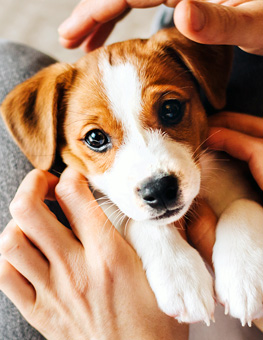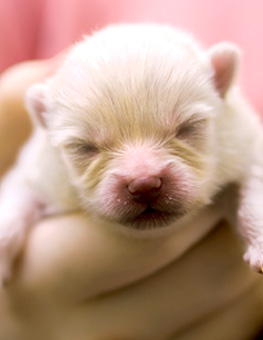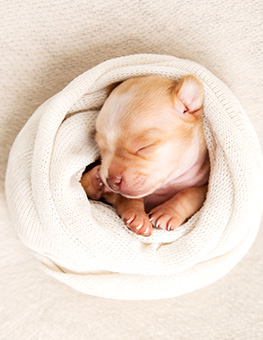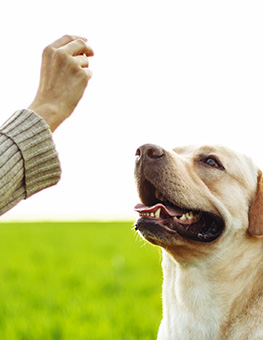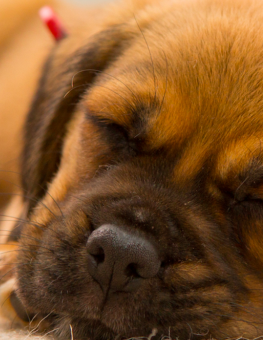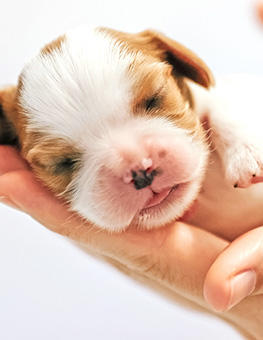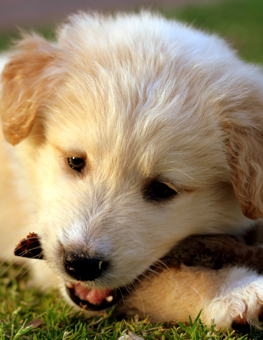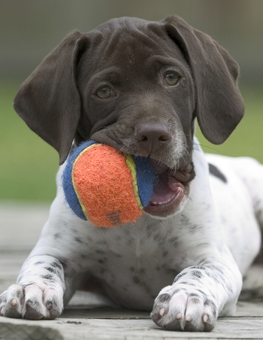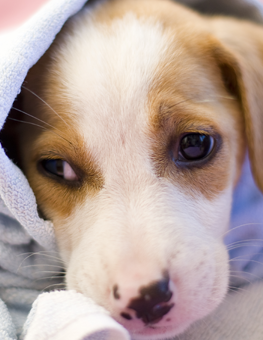The Importance of Socializing Your Puppy
It is incredibly important to socialize your new puppy to prevent some psychological issues from developing and emerging later on in life.

A well-socialized puppy can grow into a well-adjusted adult dog.
Written by Dr. Elizabette Cohen, Veterinarian, Radio Personality & Pet Owner
What you do now with your puppy can affect him or her as an adult dog forever. An under-socialized dog can develop many fears and anxieties, and can end up becoming a very nervous adult dog, jumping for every leaf that falls and even becoming a fear-biter. Whereas a well-socialized puppy can become a well-adjusted adult dog that is family-friendly and good company. Puppies that are taken away from their moms and siblings too soon can develop poor socialization skills.
There are 2 main socialization time periods: the first one falls between 3-5 weeks of age and the second one falls between 6-12 weeks of age. It is very important that puppies stay with their mom and siblings for as long as possible during these periods and get to develop very important social skills of relating to each other and establishing a pecking order or hierarchy. This is where the dominant dogs step up as leaders and the submissive dogs follow. This is good to recognize. If you already have another dog and you are looking to grow your family, you may want to look for a more submissive companion.
Puppies are born both blind and deaf, so touch is what they respond to. Starting at about 2 weeks, their eyes and ears open and they start to see and hear. This is the period of rapid development of all of the senses and introduction to new things. Puppies should be introduced to different stimuli, but slowly. At 3 weeks of age, puppies see and hear better, and walk less wobbly. You should maintain stability by not moving the whelping box, but expose the puppies to new sounds, textures, and experiences. Exposing them to music set on a low-volume and letting them walk around on different surfaces (carpet vs. linoleum vs. concrete) helps them develop. Of course, puppies must ALWAYS be supervised. Puppies should always be exposed to people; however, the experience must be positive with gentle petting and playtime. Have different people expose the puppy to different textured toys.

Exposing a puppy to people is important and the experience must be positive with gentle petting and playtime.
There is a natural “fear” period that starts at 8 weeks of age and continues up until 11 weeks of age. Anything that scares a puppy during this time frame can have a permanent effect more so than during any other time. This “fear period” overlaps the “human socialization period” which is from 7-12 weeks. This is also the time when most puppies get adopted, so it is crucial that good experiences happen during this time. The other “fear period” happens from 7-9 months of age, so it is critical to keep positive experiences going. It is ideal to adopt a puppy around 10-12 weeks of age, but never before 8 weeks for proper socialization (7 weeks is too young in my opinion, and 8-10 weeks is the norm now; for tiny breeds, a good breeder won’t let them go until 12 weeks; puppies learn bite inhibition from their siblings and mother at 9 weeks), and socialize your new puppy with a lot of positive reinforcement. If there is a cat in the house, expose the puppy to the cat while feeding him or her treats, so a positive connection is made. Simple training can start during this time because this is the time when most learning occurs. Keeping the socialization positive will help keep your puppy, “Healthy and Happy.”



